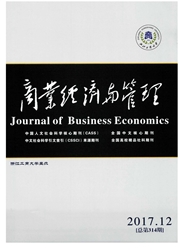

 中文摘要:
中文摘要:
文章以2009-2011年中国上市公司披露的社会责任报告为研究样本,将企业披露的社会责任信息区分为环境信息与社会信息、定量的和经济相关的“硬”信息与定性的和经济无关的“软”信息,运用事件分析法,通过比较社会责任信息披露前后股票市场波动性与流动性的变化来检验不同类型的社会责任信息在我国资本市场中发挥的作用。研究表明:社会责任信息披露评级越高,股票的波动性下降越多,而流动性上升越大;环境信息与社会信息都是企业社会责任披露必须同时涵盖的内容,在降低信息不对称中的作用是相互补充的;相较于“软”社会责任信息,“硬”社会责任信息更有助于提升市场的透明度。
 英文摘要:
英文摘要:
Social and environmental activities are often seen as part of corporations' Corporate Social Responsibility (CSR). The emergence of CSR disclosure is a response to the demands of activist investors, ethical and green institutional investors. Howev- er, is this trend beneficial to investors? Using an event study methodology and a sample of Chinese listed companies from 2009 - 2011, we investigate whether social disclosure and environmental disclosure substitute or complement each other in reducing informa- tion asymmetry between managers and investors, and whether economic (hard) disclosure and generic (soft) disclosure can play the same role to investors. Our findings suggest that social disclosure and environmental disclosure complement each other in reducing stock market asymmetry, as proxied by share price volatility and liquidity. The higher of CSR disclosure ratings, the more reduction in volatility and more increasing in eiquidity. Our results also show that the reduction in information asymmetry is higher for hard disclosure than for soft disclosure.
 同期刊论文项目
同期刊论文项目
 同项目期刊论文
同项目期刊论文
 期刊信息
期刊信息
